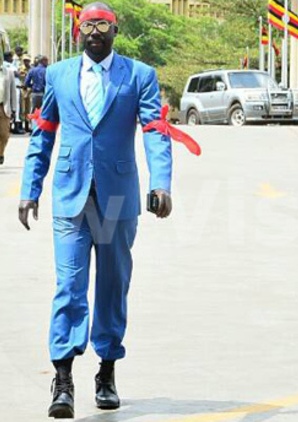The violence which broke out in Uganda’s parliament on September 26, 2017 calls for greater global solidarity and action in support of the will of the Ugandan people to end lifetime presidency in Uganda and anywhere where the fight for presidential term limits is ongoing or needed.
Lifetime President’s Profile
Life presidents are tyrannical, corrupt and bloodthirsty rulers. For a dictator to remain in power, he restricts his compatriots’ freedoms, kills, jails and exiles his opponents, and the “lucky” ones are simply intimidated and forced to live in fear. These tyrants contribute to weak institutions which are the pillars of democracy, economic prosperity, freedom, peace and political stability.
Why Violence in Uganda’s Parliament 2017
Tension has been building in Uganda ahead of a parliamentary debate on the removal of age limits currently set to 75 years for any Ugandan to run for the office of President. Under the title “Qualifications of the President”, the 1995 Ugandan constitution in article 102 stipulates that “A person is not qualified for election as President unless that person is— (a) a citizen of Uganda by birth; (b) not less than thirty-five years and not more than seventy-five years of age; and (c) a person qualified to be a member of Parliament.”
To ensure that President Yoweri Kaguta Museveni of Uganda can bid for another term legally, article 102 had to be amended by repealing clause (b), above mentioned, which applies to his particular case. President Museveni who was born on September 15, 1944, making him 73 years old. He is currently serving a five year term which is set to expire in 2021 when he will be 77 years old.
Uganda’s Presidential Term Limit Repealed in 2005
The same edition of the constitution under the title “Tenure of office of a President” stipulates in article 105 that “(1) A person elected President under this Constitution shall, subject to clause (3) of this article, hold office for a term of five years. (2) A person shall not be elected under this Constitution to hold office as President for more than two terms as prescribed by this article.” However, in 2005, Article 105 was amended by repealing clause (2) which now reads as follows “A person may be elected under this Constitution to hold office as President for one or more terms as prescribed by this article.” President Museveni has been in power since 29 January 1986, a total of 31 years.
If article 102 (b) is repealed, the next move to surely secure a lifetime rule of Uganda by President Museveni is to repeal article 103 of the constitution and any other provision related to holding elections. It is believed that President Museveni has managed to remain in power for three decades by organizing unfair and non transparent elections and is likely to do the same again in 2021.
Change Through and by the People
Honorable Robert Kyagulanyi, in an interview with NBS Television in Uganda said, “I am calling upon all Ugandans not to sit down, [but] rise up, defend the constitution before the constitution is too weak to defend us”. The most recent example of the removal of a dictator by the people occurred in 2014 in Burkina Faso. A popular revolution broke out after former dictator Blaise Compaore disregarded the call of the Burkinabe to respect the rule of law by refraining from amending the constitution with regard to the presidential term limit. Relying on a corrupt parliament, the army and mercenaries from Togo, he proceeded, but the people staged a historic revolution and won the fight. After the army sided with the people, mercenaries could not hold their ground; the hunter became the hunted; the former strong man whose hands are stained by the blood of his compatriots, including the pan-Africanist, great leader of Burkina Faso and Africa’s hero President Thomas Isidore Noël Sankara, ran for his life and now lives in exile in Ivory Coast. The 2014 Popular revolution in Burkina Faso unequivocally offers many lessons in civil society mobilization, human rights defense, nonviolent protest, community organizing and most importantly, how to defeat a dictator.
Conclusion
Christians believe and accept that God is the one and only eternal king in whose kingdom and rules they are willing to live. In 1973 in a speech at the United Nations, former dictator and late Mobutu Sese Seko (now Democratic Republic of the Congo) said something which today’s dictators and aspiring lifetime presidents must ponder: “A fruit falls when it is ripe. But before the hurricane or the storm of history, ripe or not, it falls anyway.” For real democracy, economic prosperity and lasting peace in nations where leaders continue to take power by force, people must learn from Burkina Faso to impose the rule of law, good governance and the respect human rights and freedom.
The picture caption: Honorable Odongo Ottobefore, Member of Parliament in Uganda, turned martial art master, dressed for a session in parliament to debate a repeal of clause (b) of article 102 of Uganda’s Constitution. In a Youtube video linked here you can see him in action.
Revised 10/06/2017

